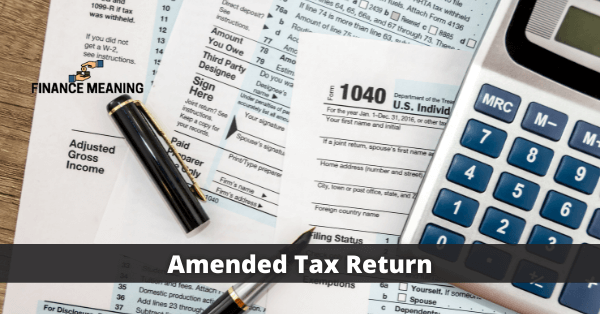This guide on “what happens if you don’t file taxes” is for those lazy and busy people who forgot to file their taxes. But now, they are worried about penalties and fines. So, no need to burden yourself due to tax tensions. We have made it easy for you to understand the consequences of not filing taxes thoroughly.
In the hustle and bustle of life, sometimes we forgot significant chores. But this mistake worsens when we have to pay for that in cash or any other punishment. Filing tax is our national duty. Unfortunately, some people don’t bother and forget to file the taxes.
Moreover, due to the pandemic crises, unemployment has increased to an alarming extent. There is no wonder if someone overlooks filing tax or not financially able to pay in this tragic situation. But this is not a frivolous decision not to bother about your tax at all. If you do not have money to spend, then there are several ways such as:
- Delay the deadline by requesting the management of the IRS.
- By making installments of your expected tax return
- By paying some amount and reducing the interests and penalties
IRS (Internal Revenue Service) comes into action when you don’t file your tax. This revenue service is by the Federal Government of the USA to regulate the tax-related tasks. The IRS will figure out your tax return and then lodge interests and fines accordingly.
Furthermore, to avoid that embarrassing situation, always make sure to file your taxes. Because if you are a non-filer, not only the fines and penalties, but you will deprive of various facilities that filers enjoy. This guide can make it easy for you to understand the calculation method.
How Does the IRS Calculate the Tax?
The U.S tax calculation method is way too tricky, so most people did not comprehend it. But this“what happens if you don’t file taxes” guide will make it convenient for you to learn the method of tax calculation by the IRS. The following steps are included in the tax calculation procedure.
Assessment of Your Gross Income
In the first step, the IRS aimed to calculate the total amount of income earned in various ways. It not only includes your salary but also includes your payment for selling investments, retirement income, business income, etc.
Finding the Deductions that may Apply to Your Tax
You have two options for the conclusions. The first is to include all the tax deductions, and the other is to go for the standard deduction. The latter is a better option to avail because in this way your payable tax amount will decrease. But we suggest you calculate tax with the help of both procedures and then evaluate which is more beneficial.
The Tax Brackets Usage
The next step is to calculate the marginal tax bracket for your payable tax. Tax brackets are named Marginal Tax Brackets because their value is different for the various amounts.
In other words, you can say that if you have more income, the percentage of the tax bracket is more and vice versa. Let’s suppose you earned up to $9,950, then your tax rate or tax bracket will be 10%.
Tax Credits
Your payable tax amount can further reduce by the use of cards. Unlike the deductions that lessen your total amount of tax, they aimed to decrease your dollar-for-dollar tax. There is a wide range of tax credits, but some famous ones are listed below.
- Child and Dependent Care
- American Opportunity Credit
- The Child Tax Credit
- Lifetime Learning Credit
- Savers Credit
Negotiate Your Tax Bill
Sometimes due to some technical, human, or any other error, you may get more tax than usual. So, in this condition, there is no need to be silent and pay all that dues. You can take professional help from the IRS and other related departments.
The easiest way to consult the IRS is by online method. You can complain about your high bill to the IRS (www.irs.gov is their official website).
The second method is to contact them on the phone. They have some toll-free numbers, and you can link to them with the help of those numbers. Here are some numbers from the IRS.
- 877-829-5500 you can call on this number between 8 am to 5 pm, for queries related to personal tax.
- 800-829-4933 is the toll-free number for tax questions. This helpline is open for calls between 7 am to 7 pm.
- 800-829-1040 for personal tax-related queries. You can call on it at any time between 7 am to 7 pm.
The third method is to contact them by sending them an email. The best and most authentic way to connect them is by mailing the Local Taxpayer Assistance Centre or local IRS in your district. The last option is to submit an IRS application form with the help of fax.
How to Avoid IRS Penalties?
Firstly, we will suggest you act as a responsible citizen and file your taxes as soon as possible. Secondly, if, due to some unavoidable circumstances, you did not manage to file your tax. And now you want to get an exemption from the IRS for penalties.
Moreover, according to the IRS, if you have paid the 80% of your total tax liability. Then you can avoid the penalty. You can claim on Line 7 if you are eligible for these services. Do not forget to add the statement “80% Waiver of estimated tax penalty” in your request. Also, you can get rid of penalties if your tax debt is due to one of the following reasons.
- Delay due to death or illness of the tax holder or the close relative.
- Unavoidable Circumstances
- Disturbance in law and order situation
- Records destroyed due to fire or any other reason.
You must have got proof of documentation to prove yourself innocent. Because the IRS has strict rules, they will not believe or waive your penalty if you do not come up with solid proof. In case the IRS has made some error, and your penalty is the cause of that mistake. Still, the IRS system hardly accepts their mistake.
What is the Statute of Limitations?
Statute of limitation is defined as the law that aims to set a maximum time limit. This time is assigned to initiate a legal process between the parties involved in the dispute or conflict. The time given by the statute can vary according to the nature of the crime.
For the IRS taxes, the statute of limitation is ten years. That means the IRS will attempt to get your due taxes for up to 10 years. This ten-year period starts the day of the assessment of your tax, the date on which an official in the IRS Service Center signs on the form of your tax bill.
In other words, if you own money and you have filed the tax with the IRS. Or the IRS itself assessed that you have enough money to become eligible to pay the taxes. Then from that particular date to ten years period, the IRS has the power to ask you for tax.
If the IRS failed to collect the tax in that time frame, then the tax went away. In this case, the IRS has no authority to ask for tax.
This ten-year limit can increase due to some suspension or hindrances. The break will be included in the taxpaying limit, so it exceeded ten years.
What Really Happens if You Don’t File Taxes?
It is never a wise decision not to file the taxes. Because in the end, you are at a loss. So, always keep in mind the question of what happens if you don’t file taxes to avoid the problems that you may face.
So, here is the list of consequences of not paying tax. The more you delay, the more you will have to pay amid penalties and interests.
- IRS charges 0.5% interest if they do not pay tax till the due date.
- If your tax is unpaid after the ten days of issuance of the notice of intent to levy, the penalty is increased to 1%.
- Moreover, you can also get a late-filing penalty. In this way, your sentence can jump to 5%.
- If you are late for 60 days, you may charge $135 or 100 percent of the tax you get.
- Not filing taxes is even worse for the self-employed individuals, as they will not get the privileges of credits towards disability benefit or social security.
- The IRS has the authority to lodge a federal tax lien against your property.
Furthermore, as you don’t file tax, the IRS will collect the information about your income. So, in this case, it may overstate the amount of your tax.
So, after knowing all those penalties, you must be thinking of becoming a tax filer as soon as possible. It is your loss of money in the form of interests. Make sure to file taxes as quickly as possible to avoid the consequences that are not good.
Moreover, if you do not have enough money, you should pay as much as possible. Because in this way, your interests will reduce or entirely waive off due to the 80% rule introduced by IRS.
Additionally, you have another option as well. You can divide your tax in installments by agreeing with the IRS team. And can pay according to your convenience. For installments, you can request at the official website of the IRS.
Final Words
To conclude the discussion about “what happens if you don’t file taxes.” We will suggest that it is a better option to file your taxes, even if you cannot pay now. Because in this way you can reduce the chances of penalties.
The best way to avoid penalties and interest is to file your tax return and pay it on time. Make sure you have all your documentation organized now to help you on Tax Day next year. Ensure you’re paying the correct amount of estimated taxes based on your withholding.
At last, we will say, always take taxes as your national responsibility and file them in the best manner. You enjoy several benefits from the state, so you should pay them back in the form of taxes.




